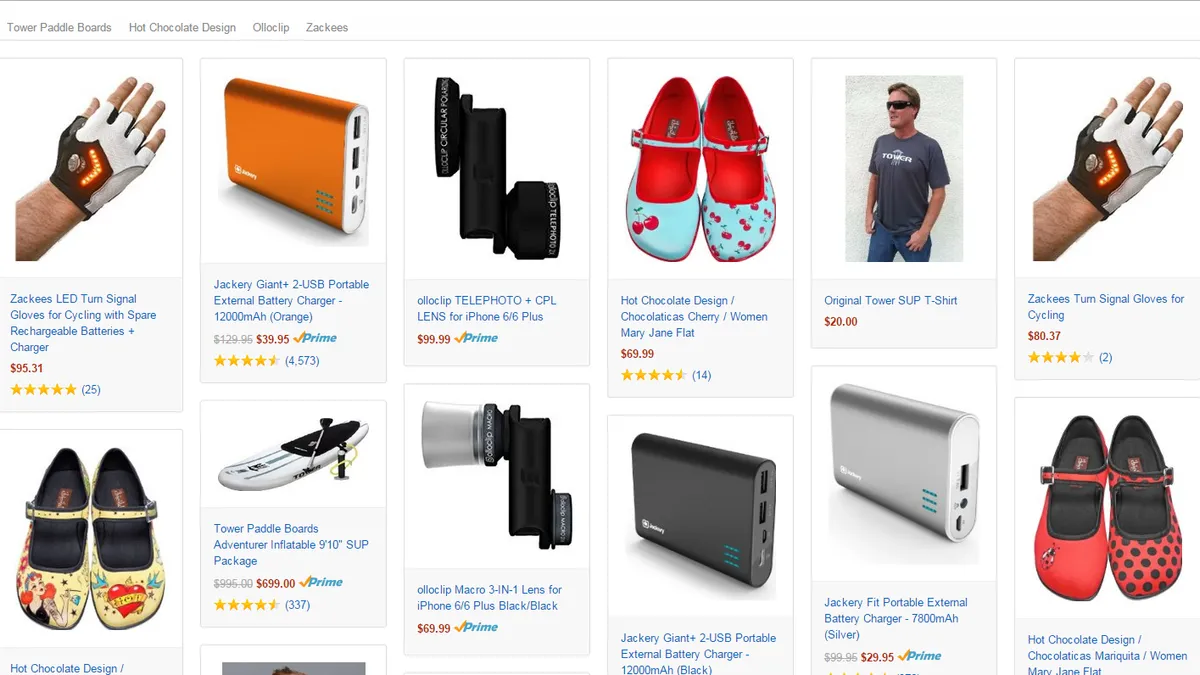Dive Brief:
- Amazon took another step to purge fake reviews from its site Wednesday by suing three sellers for using false accounts to post positive reviews about their products, TechCrunch reports.
- Amazon is looking to permanently ban the defendants in the suit from buying and selling on its website, and is also seeking all the profits the sellers made on Amazon, attorneys' fees and damages exceeding $25,000.
- This is the first time Amazon has sued sellers on its marketplace.
Dive Insight:
Amazon is taking an even tougher stance on fake reviews with this lawsuit: In the past the e-commerce giant has sued the companies that sell fake reviews, not those who buy them. The three cases filed with the American Arbitration Association target merchants that use "sock puppets" to providing overwhelmingly positive reviews on their products.
“Our goal is to eliminate the incentives for sellers to engage in review abuse and shut down this ecosystem around fraudulent reviews in exchange for compensation,” Amazon said in a statement.
Amazon is stepping up its game for good reason: Many customers use online reviews when evaluating a purchase, with 95% saying they have consulted reviews in the past, according to research from PowerReviews. Reviews fall second to price as the most important consideration when a customer is contemplating a purchase, above free shipping, product brand, and even recommendations from family and friends.
Reviews are especially important for Amazon, which has no physical store for customers to try on clothes or test out a product before buying. Making sure all reviews on its site (even the negative ones) are real is key to building customer trust and loyalty.
With these high stakes, Amazon is smart to go after fake reviews on its site with the intensity its corporate legal services provide. The retailer has sued more than 1,000 parties that provide these false reviews since 2015, and last June installed a machine-learning reviews system that favors verified users on its site. An Amazon spokesperson told TechCrunch that these methods are largely working, saying the "vast majority" of reviews on the site are authentic.















